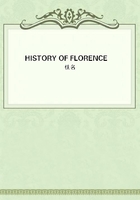
第53章
"From proceedings such as these, arise at once the attachment for and influence of parties; bad men follow them through ambition and avarice, and necessity compels the good to pursue the same course. And most lamentable is it to observe how the leaders and movers of parties sanctify their base designs with words that are all piety and virtue;they have the name of liberty constantly in their mouths, though their actions prove them her greatest enemies. The reward which they desire from victory is not the glory of having given liberty to the city, but the satisfaction of having vanquished others, and of making themselves rulers; and to attain their end, there is nothing too unjust, too cruel, too avaricious for them to attempt. Thus laws and ordinances, peace, wars, and treaties are adopted and pursued, not for the public good, not for the common glory of the state, but for the convenience or advantage of a few individuals.
"And if other cities abound in these disorders, ours is more than any infected with them; for her laws, statutes, and civil ordinances are not, nor have they ever been, established for the benefit of men in a state of freedom, but according to the wish of the faction that has been uppermost at the time. Hence it follows that, when one party is expelled, or faction extinguished, another immediately arises; for, in a city that is governed by parties rather than by laws, as soon as one becomes dominant and unopposed, it must of necessity soon divide against itself; for the private methods at first adapted for its defense will now no longer keep it united. The truth of this, both the ancient and modern dissensions of our city prove. Everyone thought that when the Ghibellines were destroyed, the Guelphs would long continue happy and honored; yet after a short time they divided into the Bianchi and Neri, the black faction and the white. When the Bianchi were overcome, the city was not long free from factions; for either, in favor of the emigrants, or on account of the animosity between the nobility and the people, we were still constantly at war.
And as if resolved to give up to others, what in mutual harmony we either would not or were unable to retain, we confided the care of our precious liberty first to King Robert, then to his brother, next to his son, and at last to the duke of Athens. Still we have never in any condition found repose, but seem like men who can neither agree to live in freedom nor be content with slavery. Nor did we hesitate (so greatly does the nature of our ordinances dispose us to division), while yet under allegiance to the king, to substitute for his majesty, one of the vilest of men born at Agobbio.
"For the credit of the city, the name of the duke of Athens ought to be consigned to oblivion. His cruel and tyrannical disposition, however, might have taught us wisdom and instructed us how to live;but no sooner was he expelled than we handled our arms, and fought with more hatred, and greater fury than we had ever done on any former occasion; so that the ancient nobility were vanquished the city was left at the disposal of the people. It was generally supposed that no further occasion of quarrel or of party animosity could arise, since those whose pride and insupportable ambition had been regarded as the causes of them were depressed; however, experience proves how liable human judgment is to error, and what false impressions men imbibe, even in regard to the things that most intimately concern them; for we find the pride and ambition of the nobility are not extinct, but only transferred from them to the people who at this moment, according to the usual practice of ambitious men, are endeavoring to render themselves masters of the republic; and knowing they have no chance of success but what is offered by discord, they have again divided the city, and the names of Guelph and Ghibelline, which were beginning to be forgotten (and it would have been well if they had never been heard among us), are repeated anew in our ears.
"It seems almost necessarily ordained, in order that in human affairs there may be nothing either settled or permanent, that in all republics there are what may be called fatal families, born for the ruin of their country. Of this kind of pest our city has produced a more copious brood than any other; for not one but many have disturbed and harassed her: first the Buondelmonti and the Uberti; then the Donati and the Cerchi; and now, oh ridiculous! oh disgraceful thought!
the Ricci and the Albizzi have caused a division of her citizens.
"We have not dwelt upon our corrupt habits or our old and continual dissensions to occasion you alarm, but to remind you of their causes;to show that as you doubtless are aware of them, we also keep them in view, and to remind you that their results ought not to make you diffident of your power to repress the disorders of the present time.